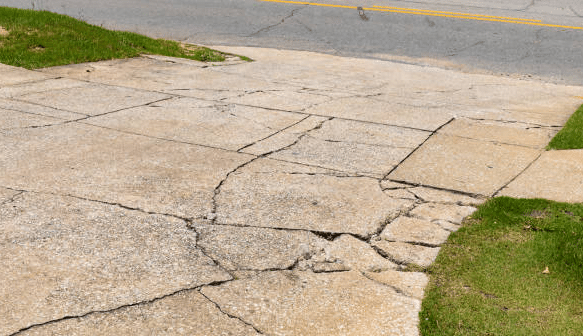Ways To Keep Your Concrete Driveway From Cracking In Vista

- Applying a sealer to your driveway is one of the best preventive measures you can take against cracking. A sealer will help waterproof the surface and keep moisture from seeping into the concrete and causing erosion over time. In addition to protecting against moisture infiltration, a quality sealant will also help protect against oil stains, fading caused by UV radiation, and other potential sources of damage.
- Reinforcing your concrete driveway with rebar is another great way to prevent cracks from forming. Rebar is a type of steel bar that helps reinforce the strength and durability of concrete structures. It also prevents cracking due to changes in temperature or movement in the ground beneath it.
- Adding expansion and contraction joints to your driveway can help reduce stress on the surface, which can cause cracking over time. Expansion joints are strips of material placed between sections of concrete that allow for minor shifting without affecting the structural integrity of the driveway, while contraction joints simply create space between two sections so that they don’t bind together when exposed to extreme temperatures or moisture.
- Installing your concrete driveway with good-quality concrete is essential for preventing cracks. Look for a mixture with high aggregate content, as this will ensure the driveway has the strength and flexibility required to withstand the elements.
- Ensuring proper grading of your concrete driveway is key to avoiding cracking. Grading refers to the slope of the ground leading up to and away from your driveway; if it’s not done correctly, water can pool in areas and cause pressure that may eventually lead to cracking.
- Regularly cleaning your concrete driveway can help prevent dirt and debris from accumulating on its surface and causing cracks over time. Make sure you use a mild detergent when cleaning, as harsher chemicals can damage or erode the concrete.
- Finally, it’s important to take action as soon as you see any cracks in your concrete driveway. The longer they go unrepaired, the larger they can become and the more damage they can do to the structure of your driveway. If left unchecked, even small cracks can eventually lead to costly replacement jobs. Make sure you consult with a professional for proper repairs if needed.
FAQ’s
Where Is Concrete Most Likely To Crack?
Concrete is most likely to crack in areas that experience extreme temperatures, frequent freeze and thaw cycles, or high levels of moisture. Poorly graded surfaces are also prone to cracking due to weight and water pressure.
What Should I Do If I Notice A Crack In My Concrete Driveway?
If you notice a crack in your concrete driveway, it’s important to take action as soon as possible. The longer the crack goes unrepaired, the more damage it can do to the structure of your driveway. Consult with a professional for proper repairs if needed.
How Long Should Concrete Last Before Cracking?
The longevity of concrete depends on a number of factors, such as the quality of the materials used, proper installation and maintenance, and surrounding environmental conditions. Generally speaking, well-maintained concrete can last for many years without cracking.
Conclusion
It pays to take steps to prevent your concrete driveway from cracking in the first place. Proper installation, maintenance, and protection are key for ensuring your driveway lasts a long time without developing cracks. For more information, contact Concrete Contractor Vista at (760) 313-6116.